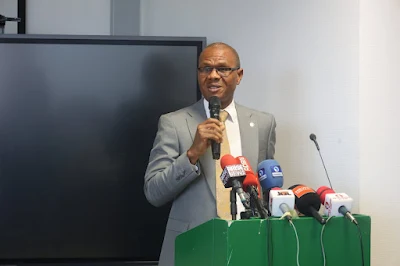EFCC Ploughs N100 Billion Recovered Funds into Student Loan, Consumer Credit Schemes

The Economic and Financial Crimes Commission (EFCC) has announced a significant milestone in asset recovery, confirming the investment of N100 billion recovered from corruption cases into the Federal Government’s crucial student loan scheme and consumer credit scheme.
This revelation was part of a mid-term report presented by the commission’s Director of Public Affairs, Wilson Uwujaren, to mark the second anniversary of Chairman Ola Olukoyede’s leadership.
The report showcased impressive figures for the two-year period between October 2023 and September 2025, including total recoveries of N566.3 billion, $411.5 million, £71,306, and €182,877, alongside various other foreign currencies. Beyond the social investment schemes, recovered funds also benefited agencies such as the NDDC, AMCON, FIRS, and NHIA.
The EFCC’s mid-term report highlighted “inspiring” achievements in its core mandate, recording 7,503 convictions and filing over 10,500 cases in court from investigating more than 29,000 petitions.
The commission secured the final forfeiture of significant assets, including 1,502 real estate properties (like 753 duplexes in Lokogoma, Abuja) and even an institution, Nok University (now Federal University of Applied Sciences, Kachia).
Furthermore, the agency has revived longstanding high-profile cases against prominent political and former public officials, including Fred Ajudua, Haliru Bello Mohammed, Sambo Dasuki, and Ngozi Olojeme.
Under Chairman Olukoyede, the EFCC has shifted its focus to prioritize corruption prevention by establishing a Fraud Risk Assessment and Control (FRAC) directorate tasked with monitoring the budget performance of Ministries, Departments, and Agencies (MDAs) to prevent fund diversion.
In the enforcement domain, an anti-cybercrime drive led to the arrest of 792 investment and cryptocurrency fraud suspects in December 2024, including 192 foreigners, signalling a clear message that Nigeria will not be a “safe haven for cybercrimes.” The commission also strengthened internal integrity by dismissing 55 officers for misconduct, emphasizing that it adheres to the principle that “you cannot use corruption to fight corruption.”
This domestic crackdown is complemented by enhanced international collaboration with agencies like the FBI and the UK’s NCA, which has facilitated the return of recovered assets to victims in various countries.









